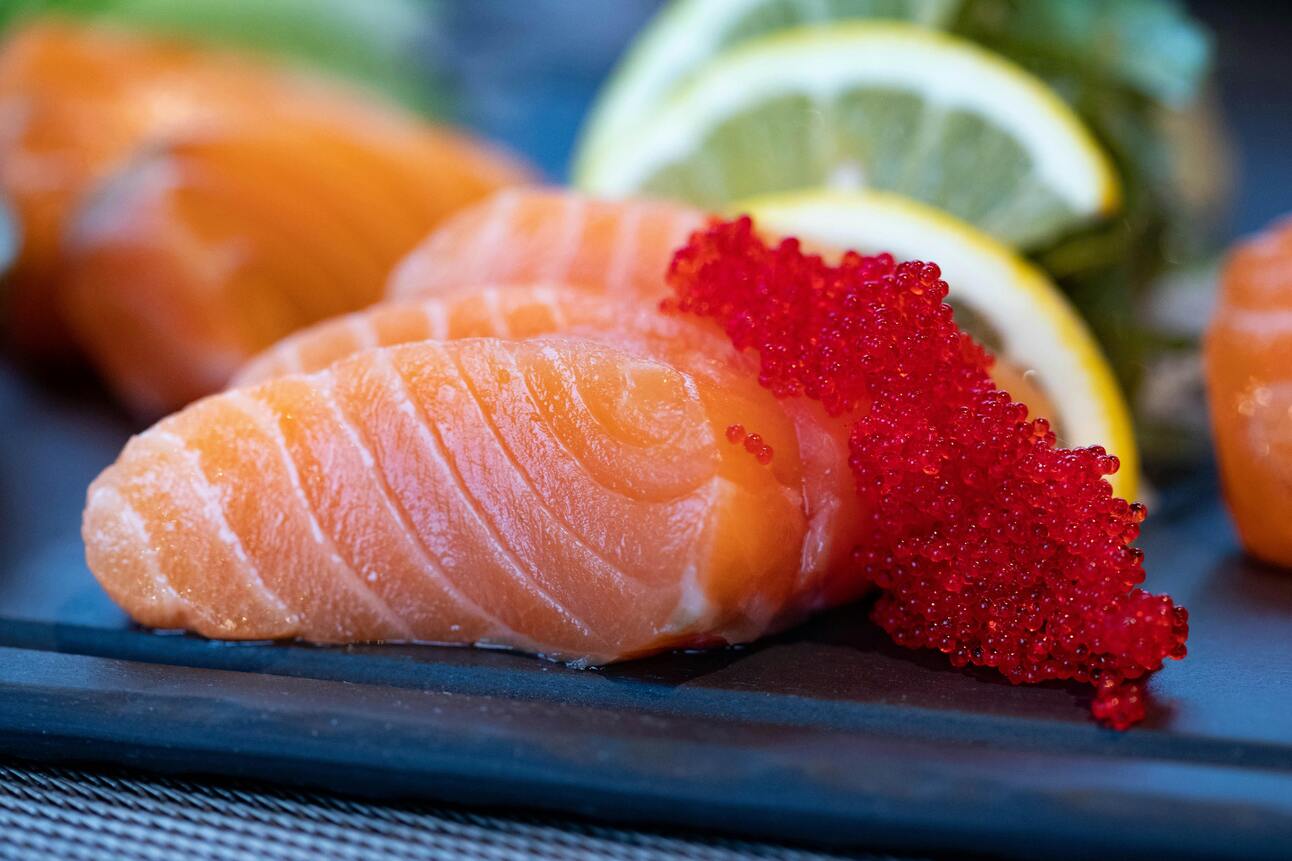
Photo by Valeria Boltneva: https://www.pexels.com/photo/close-up-photo-of-sliced-salmon-1683545/
The title of this article may sound kind of like a science-fiction / buddy-cop movie about a robot and a supercomputer who solve crimes together, but alas, it’s about nutrition – albeit very important nutrition!
For quite a number of years, omega 3 fatty acids, particularly DHA and EPA from marine sources such as cold water fish and krill, have been touted for a number of health benefits. These include improvements in depression, reduced arthritic pain, and improved cardiovascular health.
The function of omega-3s in the body is so important that a 2012 Harvard University study calculated insufficient intake of omega-3 to be the 6th leading cause of preventable death!
Most of the benefits from omega-3 fats are at least in-part due to their general anti-inflammatory effect. But new studies have found a potentially huge new benefit to brain health in DHA’s contribution to the formation of what’s known as the blood-brain barrier (BBB).
The BBB is a special membrane that separates the majority of brain tissue from the general blood circulation of the body. It functions as an extra layer of protection for the brain against pathogens, toxins, etc.. One type of cells in the BBB known as pericytes work in concert with a special carrier molecule that transports substances the brain needs across the BBB. Recent studies have found that pericytes often decline with aging, resulting in vulnerable areas and “leaks” in the BBB membrane that potentially may lead to neurodegenerative disorders such as Alzheimer’s.
The pericyte carrier molecule is comprised largely of DHA and there is speculation that loss of pericytes from the BBB as some people age might be the result of long-term insufficient intake of omega-3 fats.
It appears that omega-3s may have an important function in preventing neurodegenerative disorders and slowing the effects of age on the brain – problems that currently lack particularly effective treatment.
Now, the “ideal” intake of omega-3 probably varies considerably from person to person, and the need for supplementation will depend heavily on how much one consumes as a regular part of their diet. Those who consume oily fish like salmon a few times per week may not need to supplement at all.
Just a quick side note on salmon... there’s some controversy over which has more omega-3, wild or farm-raised. As it turns out, on a weight basis, wild-caught is about the same as farm-raised. Farm-raised is higher in total fat though, so wild-caught is higher in omega-3 as a percentage of the fat it contains. So, while wild-caught is probably somewhat superior in some ways, farm-raised is usually easier and cheaper to obtain and is still a rich source of omega-3 – about 4000 mg per 3.5 ounce serving.
There is no established recommended daily allowance for omega-3, but most experts recommend a minimum intake average of 500 to 1000 mg per day for young, healthy people, and suggest 1000 to 2000 mg per day for those middle-aged and older. For those with inflammatory health conditions, depression, cardiovascular disease, and/or neurodegenerative disorders (or have a family history of them), higher dosages may be indicated of 2000 to 4000 mg per day.
In general, daily intakes of up to 5000 mg of marine omega-3 fatty acids from fish or krill oil are considered safe, but there are potential drug interactions to be aware of. The most serious interactions are with blood-thinning/anti-coagulant drugs, as omega-3’s have some mild blood-thinning effects and can dangerously potentiate those drugs. In addition, high-dose omega-3 is known to reduce the effectiveness of hormonal birth-control. If you are on any medication, it’s always good to check with a pharmacist about potential interactions before starting any form of supplementation, particularly if you’re contemplating a dosage on the higher end of the safe range.
Finally, the question often comes up as to whether fish oil or krill oil is a better omega-3 supplement. Krill oil does appear to have a significant advantage in absorption, and environmentally-speaking it’s harvest is very highly sustainable (moreso than many fish). That said, krill oil is considerably more expensive than fish oil (up to 10 times the cost) and not as widely available. The dosage suggestions discussed previously are for omega-3 from fish oil. So, while krill oil may be superior, I think fish oil gets the job done at a more reasonable cost in most cases.
Until next time…
George F. Best, D.C.

